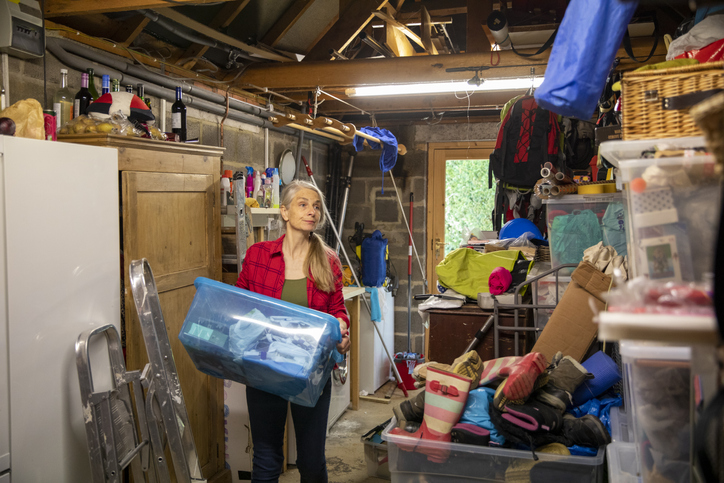According to a recent survey by RAC Home Insurance, nearly 6 million UK garages aren’t used to store cars. That’s more than half of garages not being used for their original purpose and instead, being used for other things, such as extra storage. Amongst the items that we love to store in our garages, DIY tools and materials are the most common, followed by gardening tools, bikes and scooters. Aside from needing it for extra storage, the second most popular reason for homeowners not using their garage to store their car is that it’s simply not big enough to park the car and comfortably get in and out of. For those not using it for storage, others have transformed it into workshops, office space, a gym or into another bedroom.
But is it really worth the hassle of transforming your garage into something more useful? According to Admiral, the average UK garage is 128 square feet, and estimated that each extra square foot of living space added to your home is worth £350. This means it’s possible that converting the garage could add up to £45,000 to the total value of your property.
So how could you get the most out of your garage and possibly increase the value of your home? Here are some thoughts to consider to help you get started.
Plan your space
Before you jump on the horn to a builder, you need to think about what you will use the extra room for. What makes the most sense for you and your family? If you have a big family then maybe you could you do with a bigger dining room, or maybe a playroom for the kids and keep the living room for yourself? Or could you do with a bigger kitchen and the garage is in a perfect spot to extend your existing space. Not forgetting, with so many of us now working from home, an office could be the way to go.
Or perhaps you’ve always wanted your own gym? This is one of the most popular – and easiest – conversions to go for. By adding insulation, a floating floor and training equipment, you can get fit without the hassle and financial outgoings associated with a gym membership.
Many small businesses were grown from lockdown, with people exploring new hobbies or finally having the time to expand an existing hobby to something more lucrative. If that’s you, then your garage could become your new workshop or studio at home, meaning you could save money on renting a space.
What about a guest suite? You may find that relatives are keener to babysit if they know they’re staying in their own guest room and sanctuary. The only downside is getting them to leave again.
Think about access to the room too. Many garages are built on a different level to the house so may require raising the floor which will be an extra expense and more time on to your plan.
Plan your budget
Before deciding to go ahead with any work you need to figure out your budget. Depending on what you are converting your garage into and what your plan is, your budget could vary from a few thousand pounds or upwards of £10,000 if it involves structural changes or buying a new kitchen for example. You will also need to factor in labour costs and if you’re hiring a builder or architect to plan out your dream space.
Of course, your renovation could be much simpler and involve a lick of paint and some new furniture, but even the most basic plan will involve having to insulate the room properly and plastering the walls as most garages are pretty basic inside. You’ll need to think about heating, plumbing and lighting, and even security.
Always ask your builder to give you a full breakdown of costs to allow you to plan your finances and avoid any surprises. Give yourself some wiggle room and plan in some contingencies too in case you go over your budget.
The good news is, if the garage is attached to your home, you probably won’t need to pay for planning permission, as the work will be allowed under permitted development rules. But if you’re adding in windows or French doors then you may need building warrants to cover the changes. Always check with your builder or local authority before you go ahead with any major work.
If your garage is separate to your house, however, you will probably need to apply for planning permission. Also, garages that are listed or located in conservation areas will be less straight forward in terms of permissions, and any changes will need to comply with Building Regulations. Again, speak to your local authority about your plans before you begin.
It’s also nice to give your neighbours a heads up if any work is getting done, especially if it involves loud noises, lots of labourers coming and going and will involve a lot of mess, even if for a short while.
If you’ve got no scope to improve your home and are considering your next move, you’ll find all the best properties for sale and to rent in Scotland at s1homes.com



















